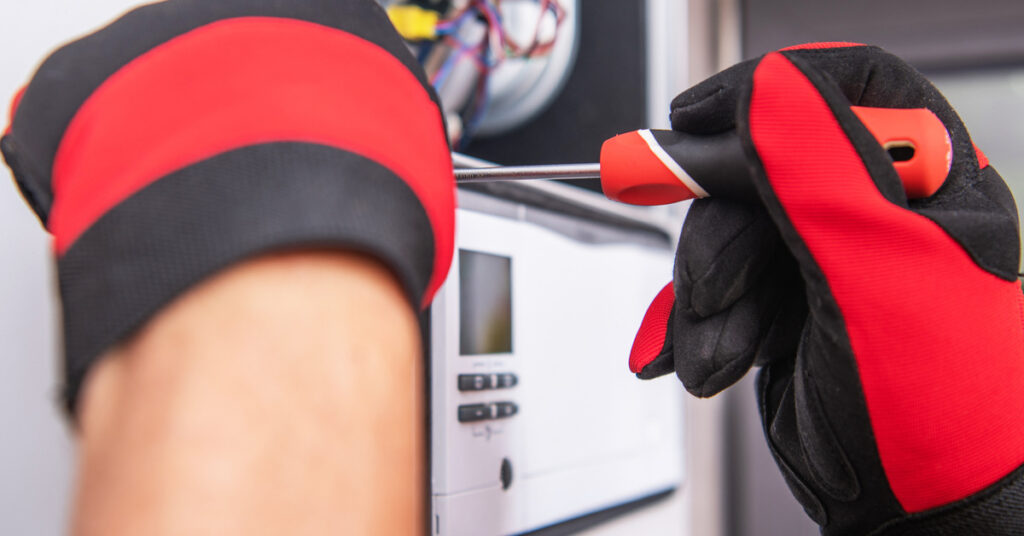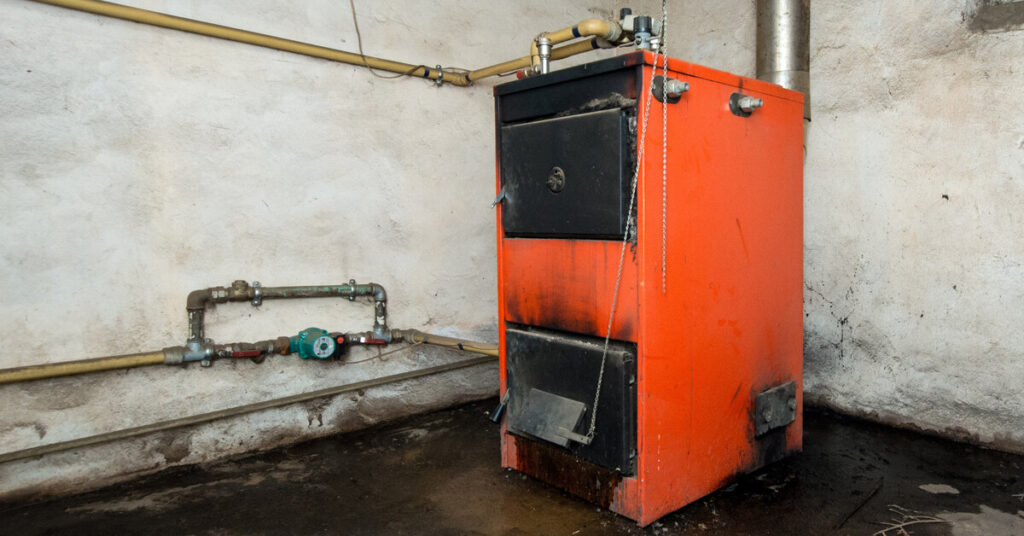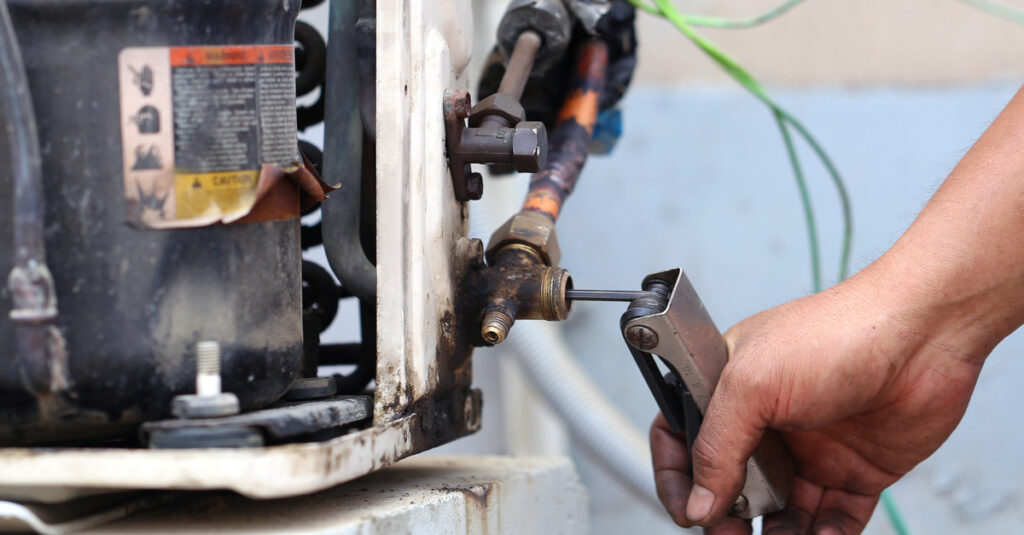- 24/7 Emergency HVAC Repair
- Financing Available
- We Accept All Major Credit Cards
12 Warning Signs Your Furnace Needs a Tune-Up

Keeping your home warm and cozy during winter depends heavily on your furnace’s performance. Just like any other vital system in your home, your furnace requires regular maintenance to stay safe, efficient, and reliable.
Recognizing potential issues early helps you protect your home, improve energy efficiency, and even extend the life of your furnace. Here are some important warning signs your furnace needs a professional tune-up, ensuring you stay ahead of any problems.
1. Unusual Noises Coming From the Furnace
Strange noises are a notable signal that there’s an issue with mechanical devices. Banging, rattling, squealing, or whistling sounds indicate loose components, a faulty blower motor, or even a cracked heat exchanger. These issues worsen over time, leading to more expensive repairs if left unchecked.
While some noises may seem harmless, it’s always better to have a professional evaluate the problem early on for peace of mind. A quiet furnace is a healthy furnace, so don’t ignore these auditory red flags.
2. Uneven Heating or Cold Spots in Your Home
If certain rooms in your home feel colder than others despite the furnace running, this might point to an issue with your system. Uneven heating could result from problems such as clogged filters, leaky ducts, or a struggling furnace that can’t circulate air effectively.
This inefficiency reduces your home’s comfort and increases energy waste as your system works harder to maintain desired temperatures. Promptly addressing this issue ensures balanced heat distribution throughout your living space. A well-tuned furnace is key to consistent, even warmth in every corner of your home.
3. Rising Energy Bills Despite Normal Usage
If you notice a sudden spike in your energy bills after using your furnace normally, there may be an internal issue. A furnace operating inefficiently due to worn-out parts, dirty filters, or other underlying problems requires more power to function. Over time, these inefficiencies cause your utility costs to climb significantly.
Catching and fixing these issues early saves money and prevents undue strain on your system. Regular tune-ups keep your furnace running at peak efficiency, ensuring you’re not paying more than necessary to heat your home.

4. An Aging Furnace Approaching 10+ Years
Furnaces are strong, but even the best systems start to show their age after a decade or so. Older furnaces are more likely to experience breakdowns, reduced efficiency, and higher repair costs compared to newer models.
If your furnace is over 10 years old, investing in regular tune-ups helps it maintain its performance and reliability. Hire professionals skilled in heating and cooling services from W.F. Smith for a thorough inspection. Staying proactive also gives you time to plan for a replacement when the time comes, preventing last-minute surprises or emergencies.
5. Frequent Cycling On and Off
Short cycling is the frequent switching of your furnace from on to off, and it’s a sign of trouble. This pattern occurs due to a dirty filter, thermostat issue, or even an overheating furnace.
Short cycling reduces heating efficiency and puts added stress on the system, potentially shortening its lifespan. Ensuring your furnace cycles properly maintains comfort and minimizes wear and tear. A properly functioning furnace should run smoothly without constant interruptions.
6. Unpleasant Odors From the Furnace or Vents
A functioning furnace shouldn’t produce unusual smells. If you notice persistent odors like burning, mustiness, or gas, it’s time to investigate. Burning smells may indicate an electrical issue or debris in the system, while musty odors often signal mold or mildew buildup in the ducts.
More seriously, the smell of gas could point to a leak or combustion issue, which requires immediate professional attention. Eliminating these odors keeps your home environment safe and pleasant.
7. Yellow or Flickering Pilot Light
The color of your furnace’s pilot light reveals surprising health results. A healthy furnace typically has a steady blue pilot flame, which indicates proper gas combustion.
If your pilot light is yellow or flickering, this could be a sign of a ventilation issue, carbon monoxide leak, or impurities in the gas line. Such problems are dangerous and need inspection by a professional immediately. Don’t take risks with your furnace—your household’s safety depends on it.
8. Difficulty Starting the Furnace or Keeping It Running
If you need to try several times or troubleshoot each time you start your furnace, it could be a sign of wear and tear. Aging components, a failing motor, or thermostat problems all cause difficulty in starting or operating consistently. Even small delays in startup signal bigger underlying issues.
A professional tune-up identifies and addresses these problems before they lead to complete system failure. Reliable heating starts with a furnace that runs smoothly with minimal effort.
9. Poor Air Quality Throughout the Home
Your furnace does more than just heat—it plays a critical role in circulating air throughout your home. If your family is experiencing more allergies or you notice excess dust and particles, your furnace could be contributing to poor air quality.
Dirty filters, uncleaned ducts, or mold growth in the system all worsen the air you breathe. Regular maintenance ensures your furnace delivers cleaner, healthier air. Your comfort shouldn’t come at the cost of your health.

10. Visible Signs of Rust or Corrosion
Rust or corrosion on any part of your furnace is a clear warning sign of trouble. Over time, moisture buildup within the system leads to deterioration, affecting key components like the heat exchanger.
Ignoring rust results in safety hazards or causes your system to fail prematurely. Because of this potential issue, scheduled maintenance is an essential component in furnace longevity to avoid rust.
Addressing visible wear prevents larger, more expensive problems down the road. A professional technician may restore your furnace to safe and proper functioning or offer suggestions for replacement.
11. Unresponsive Thermostat
Sometimes, furnace problems are due to the thermostat. If you find that adjusting the thermostat has no impact or results in inconsistent heating, it might be more than just a faulty control unit. Malfunctioning thermostats drain energy and limit your furnace’s ability to provide effective warmth.
Reconnecting or replacing the thermostat often resolves the issue, but a professional assessment ensures you address the correct cause. A responsive thermostat makes all the difference in creating a comfortable home environment.
12. Carbon Monoxide Detector Alerts
Carbon monoxide is a colorless, odorless gas that poses a danger to your household. If your carbon monoxide detector goes off, turn off your furnace immediately, open windows for ventilation, and call a technician right away.
Common causes include cracked heat exchangers or improper combustion, which require immediate attention. Protecting your household from this threat underscores the importance of regular furnace maintenance. Safety should always be your priority.
If you’ve noticed any of the warning signs listed, your furnace needs a tune-up immediately. Professional tune-ups resolve issues before they escalate into bigger problems, saving you from headaches and unexpected costs. Don’t wait until your furnace stops working altogether—be proactive and stay warm. Your comfort and peace of mind are worth it. Stay alert to these warning signs to ensure your furnace stays in great shape and keeps you and your family comfortable all winter long.

W F Smith is most responsive & professional. I use their services for my business & my home. Throughout the years when service is required I know they will give me all the options available to solve my problem. Whether it is repairs, the cost and longevity of the repairs or the replacement of the equipment. Their evaluation can be trusted, and my decision is based on all the information they provide. The entire group of employees, from the receptionist, servicemen and repair men are very courteous, responsive and professional. At the office complex of my business I have referred several owners to W F Smith and they are always pleased and thank me. In today’s economic environment you need someone you can trust, and W F Smith is a company I can truly say has never let me down.

